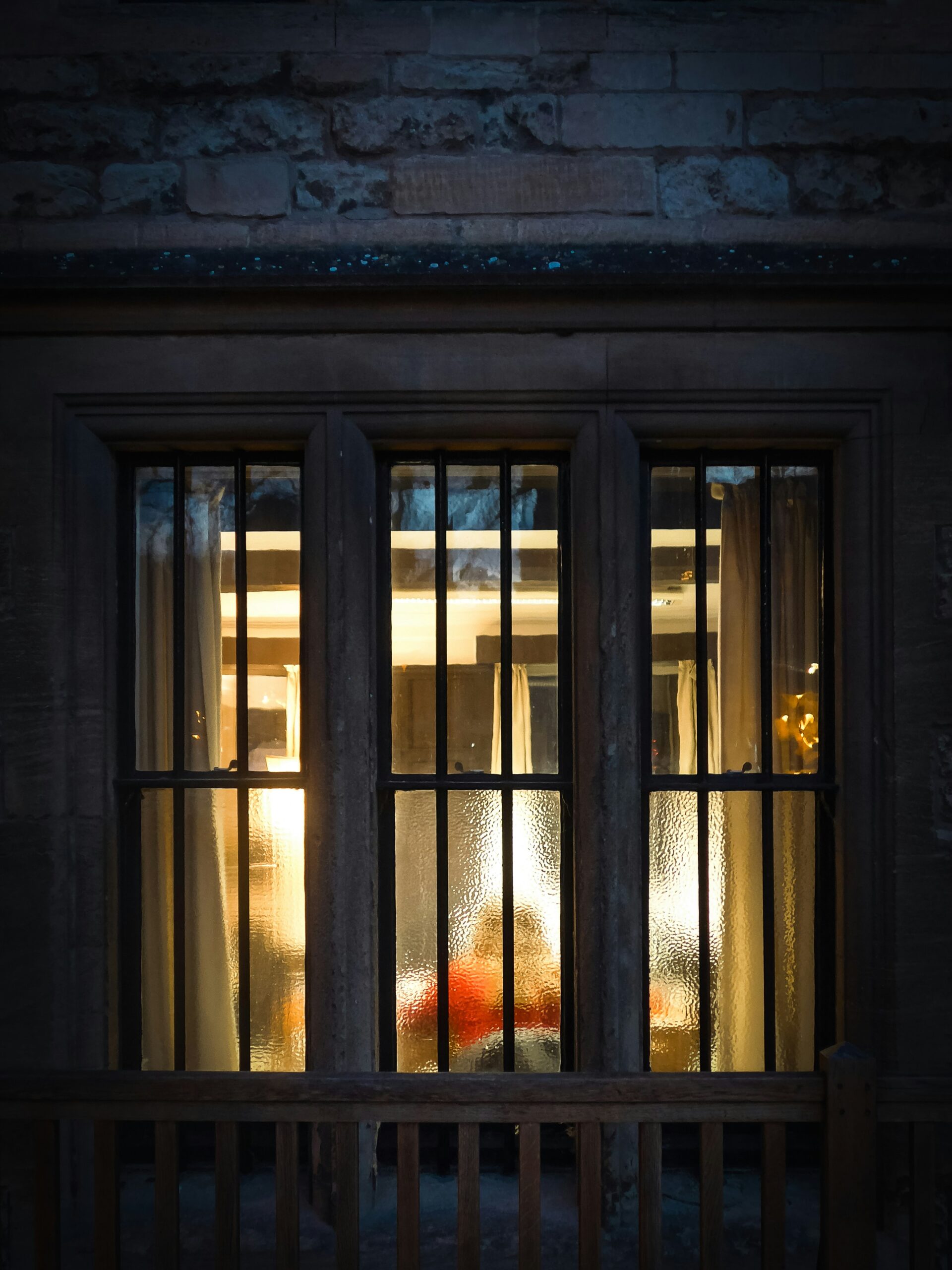Biddeford, Maine. 1851
Maud began to talk to the dead girls in January. Elizabeth and I listened to her whispering at night, urgent and furtive, for weeks. We became accustomed to the sound of it, just as we’d grown used to the freight trains’ long, low whistle and the river’s murmur outside the boarding house window. When we finally asked to whom she was talking, she told us Bernadette, who’d died from contagion that fall, and Sarah, who’d thrown herself into the canal under the mill after discovering she was pregnant, and also a woman with long dark hair and a peculiar accent whom Maud didn’t recognize and who wouldn’t give her name.
You never knew if you could believe Maud. Once, she’d convinced us that the cotton dust we breathed in was poisoning her and making her hair fall out. Then, I saw her standing by the fireplace in our room, pulling out strands one by one and feeding them idly to the flames.
“What do the dead look like?” Elizabeth asked archly. She thought Maud was a fraud and a liar.
“Like shadows.” Maud cocked her head to the side, placing a finger to her lips in thought. “Like shadows that are fighting to be seen.”
Later, to an audience of girls from other rooms in the boarding house, Maud added, “They don’t move like people.”
“Then what do they move like?”
“They move like rabbits, jerky and all at once.”
“Why are you the only one who can see them?” a young girl who worked in the carding room asked. “Why’d they choose you?”
“Because when I heard them knocking, I let them in.”
***
I didn’t want to encourage Maud, but I wondered what the dead girls wanted. I tried to listen to Maud’s nighttime ramblings, but I caught only snippets. Sideways… Yes, she was always like that, always small and…Green and gold …Put that away… Forever?… Why won’t you tell me? Tell me, please.
Some of the girls began to trail after Maud, vying to sit next to her at supper, inquiring if she’d like to go for a walk down Main Street in the evenings, peppering her with questions. It was deep winter. The smoke from the oil lamps made our throats scratchy and dried the skin on our hands and faces. By the time we shuffled out of the pliant warmth of the mill into the shocking January cold, it was long past dark. Life took on a strange unreality; anything might be true.
By the end of February, Maud’s eyes never seemed to focus. She began to make even her most devoted acolytes nervous. Occasionally, Maud would jolt upright in bed, walk over to her trunk and lift the lid, or crack the door to our room. She’d kneel near the fireplace and gaze up towards the flue. One night, I woke shivering. Maud had opened the window and was leaning against the ledge.
“What are you doing?” I hissed. “It’s freezing.”
She looked at me, dazed. “Didn’t you hear them tapping?”
“I didn’t hear anything.”
Maud shook her head as if clearing it of cobwebs. Even in the semi-darkness, I could tell that Maud’s skin had grown sallower. A little forked line of blue marked a vein on her forehead that I’d never noticed before.
Elizabeth shifted beside me and, without opening her eyes, said, “Leave her to her foolishness.”
“Maud,” I said, climbing out of bed and approaching her slowly, the way I would a wounded animal. “You don’t look well.”
Maud’s gaze had drifted towards the back corner of our room. I willed myself not to turn around. “Maud,” I repeated. My neck prickled.
“Don’t you miss them?” she asked.
“Who?”
“The dead.” She dragged her hand through the air in a vague arc. “All your dead.”
“Of course,” I whispered. Maud knew my mother had passed two years ago. She didn’t know that Mom had taken my infant brother with her, pressed tightly against her breast. It had been so cold that winter. The week after they’d died, a pitcher of water had frozen in the night. I’d heard the porcelain crack and then clatter to the floor.
Maud finally met my eyes. “Then why don’t you invite them in?”
“How?” I said so softly Maud might not have heard me. Maud’s gaze darted back to the space behind my right shoulder, and I didn’t dare say anything more, in case the spirits really were listening.
One side of Maud’s mouth quirked upwards. I couldn’t bear it any longer. I spun around. Was that corner slightly darker than the other corners? Was there the faintest shadow made by the faintest body, the faintest reaching arm? I couldn’t say; I still can’t say.
“You need to sleep. Let me take you back to bed.” I slammed the window shut and dragged her by the elbow. Then I dove next to Elizabeth, who lifted the covers over me and turned to face the wall.
***
The winter marched on, bitter and slow. My knuckles became sore, and Elizabeth taught me to rub grease on them to keep them soft. It snowed for two days straight, and the train had trouble getting through. One of our roommates told us she’d had enough of Maud’s strange ideas and switched boarding houses. Maud grew more distant, and I woke each morning with a stone of fear already settled in my stomach. I knew we could not continue like this.
Then, early one shift, Maud’s sleeve became caught in the spinning mule. By the time she was freed from the machinery, her flesh had been torn to meat; her bones snapped like twigs. Millie, whose station was nearby, said it looked as if Maud’s arm had been turned inside out.
Accidents like this happen, of course, but Maud was a good, quick worker, even after her sleepless nights began.
“She let herself grow careless,” Elizabeth said with a shrug at supper, trying to smother her anxiety with indifference, as is her way. When she looked up from her plate and saw my expression, she added, “Our poor Maud.”
The next day, I visited the infirmary. Maud’s damaged arm had been removed, and the empty sleeve of her gown bore a tallow-colored stain near the shoulder. I held my handkerchief to my mouth to hide my gagging. There was a smell like curdled milk.
“Susana!” Maud said too brightly. Her lips were almost white, and her cheeks were splotched unevenly with red. “I knew you’d come!”
The nurse had given me a bowl of broth and confided that Maud wasn’t eating.
“We’ve all missed you,” I said.
“Not Elizabeth, I bet.” Maud laughed. She was more cheerful than she’d been in months.
“Yes, of course. Even her.” I sat by the bed and stirred the broth. I tried to spoon some of the liquid into Maud’s mouth, but she thrust the spoon away. Her delirium made her movements jerky and unpracticed, too quick. I began to cry.
“Hush,” Maud said, almost playfully. “I’m not scared anymore. I know the way back now.”
“Back to where?”
“Back here. They showed me, finally.” She rolled onto her side, the stub of her shoulder pointing upward. She scrunched her eyes shut with the effort of swallowing. “They showed me the way because I have been so good to them. Like you’ve been good to me.”
“Don’t tire yourself,” I said, pushing her hair back from her forehead, which was startlingly hot. I didn’t want to hear any more about the dead girls.
“You must promise that you will not abandon me.”
“I’ll stay as long as I can,” I said, wiping at my cheeks. “And I’ll come back tomorrow.”
“This is important, Susana. When you hear me knocking, you must let me in.”
“You don’t know what you’re saying. Please, if you’d only eat.” I tried to bring the spoon up again, but my hand was shaking.
“You have to promise me.”
“We’ll talk more after you’ve rested,” I said, looking around for the nurse.
“I’ve asked you nicely. Don’t make me ask again.”
A rash spread over Maud’s chest and neck. She barely seemed to know me when I visited, but every time I rose to go, she would growl, Do not leave me. Once, with her eyes shut to thin, angry slits, she told me, “Bernadette says I cannot show you the way, but I can take you with me if I want.”
***
Maud didn’t last the week. Her mother and sisters had arrived from New Hampshire, and they gathered her belongings as if in a stupor. I’d already removed Maud’s diary and hidden it in my drawer; I didn’t want them to be alarmed by whatever confessions it might contain.
A new girl moved in to take Maud’s place. That night, I dreamt someone was rapping on the window. But when I fully pulled myself from sleep, I found the room was quiet. The next night, there was a rustling in the chimney. In the morning, when I told Elizabeth that squirrels must have gotten in, she laughed and regarded me with warm indulgence.
“With the fire going? They’d be burned to a crisp.”
Later, in the spinning room, a line of threads snapped all in a row, as if a sharp-nailed finger had been pulled across them. The supervisor complained that we’d let the room get cold.
Another night, I watched a shadow in the darkest corner of our bedroom pulse slowly, as if it were breathing. I heard the ice floes in the river cracking against one another. I gripped Elizabeth’s warm hand, shut my eyes, and prayed. A few weeks later, there was a storm accompanied by no rain or even snow—just lightning and three quick percussive claps of thunder.
Now, it is April, and the days are growing longer. The air is growing thicker, the buds fighting their way back into the world. The tree limbs don’t look so much like bony, beckoning fingers. Still, I hesitate before opening drawers or peering up at the gleaming yellow windows of the mill at night. I scurry across the Main Street Bridge without stopping to look at the water coursing below. I stay as far away from the empty space beneath the bed as possible, and I have not touched Maud’s diary again. I ask Elizabeth to open the letters I receive weekly from my father and read them first so she can warn me of any ill omens or bad news. So many things, I’ve realized, can be a door.
Just this morning, as we were dressing for church, a starling threw itself against our bedroom window three times before dropping from the sky like a stone. Even Elizabeth paled, and none of us moved to the window to check what had happened to the little bird.
I wanted to. But I know what Maud is asking of us. I know we cannot give it to her. I know that once I start seeing her, I won’t ever stop.




